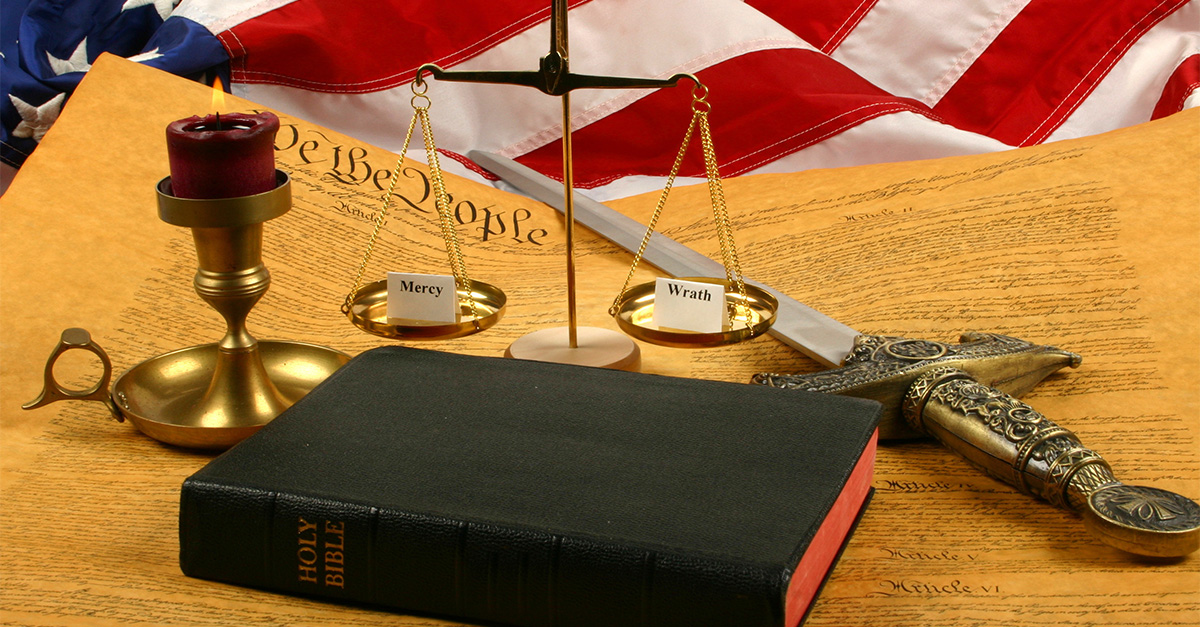


Get a free copy of Parental Rights & Education when you subscribe to our newsletter!

“Remember: 1) Government is God’s servant, and 2) government is accountable to God. While there is much more than could be said, if you hold on to these twin truths, you will be able to chart a solid course on any political issue that comes your way.”
–WILLIAM WOLFE
Many Christians will know Wayne Grudem for his classic works on systematic theology. His 1994 edition of Systematic Theology: An Introduction to Biblical Doctrine Hardcover is still assigned as a key textbook in many seminaries across our country — and even around the world — today. Along with authoring over 20 books, Grudem helped found The Council for Biblical Manhood and Womanhood and currently serves as a professor of Theology and Biblical Studies at Phoenix Seminary. Dr. Grudem is a great man of God who has contributed greatly to the recovery and advancement of biblical and systematic theology and Christian ethics over the last 40 years.
Needless to say, Grudem is not a man who shies away from tough topics.
Given the volatile political situation we face in the United States these days, it’s worth revisiting some of the “Biblical Principles Concerning Government” that Grudem sets forth in Chapter 3 of his book. Here are just two of those foundational principles:
This comes directly from Scripture in both the Old and New Testaments, including Genesis 9:5-6, Romans 13:1-7, and 1 Peter 2:13-14. Looking specifically at Romans 13:4, we see a very important foundation for understanding the purpose of government:
“For the one in authority is God’s servant for your good. But if you do wrong, be afraid, for rulers do not bear the sword for no reason. They are God’s servants, agents of wrath to bring punishment on the wrongdoer.”
Here, Paul twice repeats the teaching that government is “God’s servant” (θεοῦ διάκονός) and particularly that this servant of God must exercise his derivative authority for the good of the people he governs.
Consider this: In order for servants to be faithful, they must 1) know who their master is, 2) know what their master expects of them, and 3) discharge their duties faithfully. Who is the Master of the servant that is government? God. What does God expect of government? To use their authority for the good of the people they rule. What does faithfulness in this role look like? Rightly punishing evil and praising good.
To be clear, this demands that civil government, rulers of men, rule according to God’s standards of good and evil — not their own. Grudem explains,
“This means we should think of government officials as serving God when they punish evil and promote what is good, whether they realize it or not. This is a strong passage that we should view civil government as a gift from God, something that brings us great benefits.”
Grudem also rightly argues that civil government would have existed even if Adam and Eve had never fallen into sin, because “Even if there were no evil in the world…there would still be some need for government. This would include doing things that promote the common good of society.”
“God is sovereign over all nations, and all people are accountable to Him.”
Because we don’t live in a theocracy, and because we do live in a constitutional republic with democratic elections, it can be easy to forget that governments aren’t ultimately accountable to people — but to God Himself. And as citizens we aren’t ultimately accountable to government — but to God.
Other great theologians in recent history have warned about what happens when government forgets that it is accountable to God. R.C. Sproul records a conversation he had with Francis Schaeffer about this very same threat in which he asked the influential evangelical theologian about his biggest concern for the future of the Church in America.
“Without hesitation, Dr. Schaeffer turned to me and spoke one word: ‘Statism.’ Schaeffer’s biggest concern at that point in his life was that the citizens of the United States were beginning to invest their country with supreme authority, such that the free nation of America would become one that would be dominated by a philosophy of the supremacy of the state.”
Only God is the final and perfect Judge and King. When the state forgets this and tries to play “God,” tyranny follows.
Grudem explains that the idea of God’s appointment of rulers is expressed in a general way in Psalm 75:6-7:
“For not from the east or from the west and not from the wilderness coms lifting up, but it is from God who executes judgment, putting down one and lifting up another.”
Grudem also looks at Daniel 2:21 to affirm this, which teaches us that God “removes kings and sets up kings,” as well as at Daniel 4:25, which says that “the Most High rules the kingdom of men and gives it to whom he will.”
This second principle is a critical supplement to the understanding that governments should rule for our good, because ultimately we know that God will hold all governing officials accountable to His perfect and holy standards. Furthermore, we can trust His sovereignty over our own political situation, whether we have good rulers or not. In God’s universe, justice will always be served.
In a day and age that is deeply confused about politics, these two major biblical principles concerning government that Grudem lays out in Politics – According to the Bible: A Comprehensive Resource for Understanding Modern Political Issues in Light of Scripture help Christians order themselves to our own government, and all of politics, according to Scripture — and not according to our own opinions or the passing philosophies of mankind.
Remember: 1) Government is God’s servant, and 2) government is accountable to God. There is much more that could be said, of course, but if you hold on to these twin truths, you will be able to chart a solid course on any political issue that comes your way.
Follow William on Twitter! @William_E_Wolfe
Ready to dive deeper into the intersection of faith and policy? Head over to our Theology of Politics series page where we’ve published several long-form pieces that will help Christians navigate where their faith should direct them on political issues.

Notifications